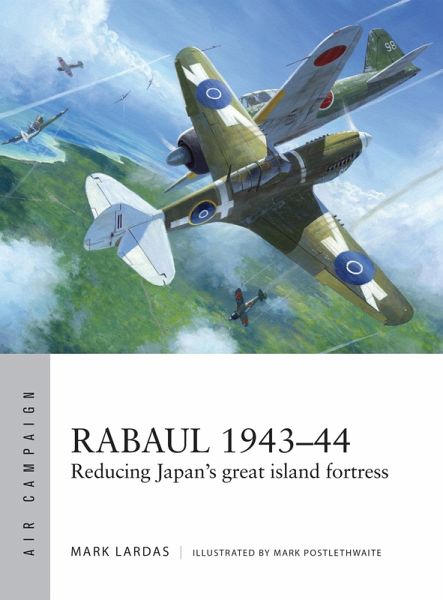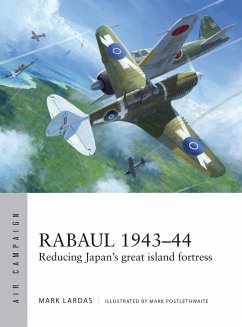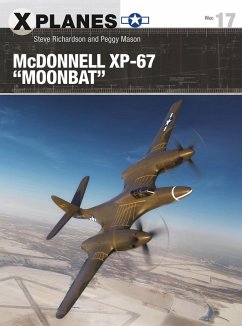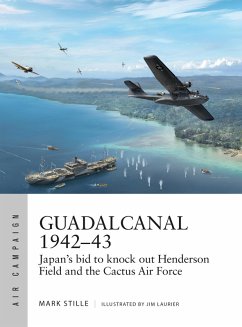
Rabaul 1943-44 (eBook, ePUB)
Reducing Japan's great island fortress
Illustrator: Postlethwaite, Mark
Versandkostenfrei!
Sofort per Download lieferbar
12,95 €
inkl. MwSt.
Weitere Ausgaben:

PAYBACK Punkte
6 °P sammeln!
The story of how Allied air power took the great Japanese base of Rabaul out of the Pacific War with an innovative strategy of aerial siege, backed by the courage and capability of the pilots who flew against the heavily fortified island. In 1942, the massive Japanese naval base and airfield at Rabaul was a fortress standing in the Allies' path to Tokyo. It was impossible to seize Rabaul, or starve the 100,000-strong garrison out. Instead the US began an innovative, hard-fought two-year air campaign to draw its teeth, and allow them to bypass the island completely. The struggle decided more th...
The story of how Allied air power took the great Japanese base of Rabaul out of the Pacific War with an innovative strategy of aerial siege, backed by the courage and capability of the pilots who flew against the heavily fortified island. In 1942, the massive Japanese naval base and airfield at Rabaul was a fortress standing in the Allies' path to Tokyo. It was impossible to seize Rabaul, or starve the 100,000-strong garrison out. Instead the US began an innovative, hard-fought two-year air campaign to draw its teeth, and allow them to bypass the island completely. The struggle decided more than the fate of Rabaul. If successful, the Allies would demonstrate a new form of warfare, where air power, with a judicious use of naval and land forces, would eliminate the need to occupy a ground objective in order to control it. As it turned out, the Siege of Rabaul proved to be more just than a successful demonstration of air power - it provided the roadmap for the rest of World War II in the Pacific.













